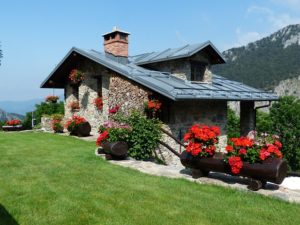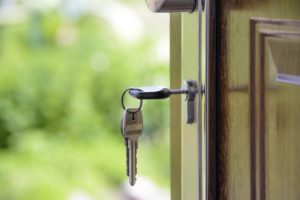The Changing Face Of Property Investment
 Property is one of those things that is seemingly always cited as a great opportunity for investment. Housing, after all, is one of those things for which there will always be a demand. The President of the United States demonstrated over the course of his career that with a small loan (of a million dollars no less) that one can become a billionaire. However, scrutiny of these claims suggests that Donald Trump did not use his ingenuity and hard work to build the empire that he ostensibly relinquished control of when he took office earlier this year. The fact is that Trump simply did not have the connections or the capital to finance some of the projects that started his career as a developer. This demonstrates that the market can be tough when you are starting out. As a point in fact, Trump declared bankruptcy four times in 1991 and 1992 alone, with a further two bankruptcies, in 2004, and most recently, in 2009. A lot of people will not have the contacts to start building hotels in Manhattan when they are in their twenties. However, there is nothing wrong with slowly and honestly building a portfolio that modestly begins with a single property. Deciding exactly what property that should be is the difficult part.
Property is one of those things that is seemingly always cited as a great opportunity for investment. Housing, after all, is one of those things for which there will always be a demand. The President of the United States demonstrated over the course of his career that with a small loan (of a million dollars no less) that one can become a billionaire. However, scrutiny of these claims suggests that Donald Trump did not use his ingenuity and hard work to build the empire that he ostensibly relinquished control of when he took office earlier this year. The fact is that Trump simply did not have the connections or the capital to finance some of the projects that started his career as a developer. This demonstrates that the market can be tough when you are starting out. As a point in fact, Trump declared bankruptcy four times in 1991 and 1992 alone, with a further two bankruptcies, in 2004, and most recently, in 2009. A lot of people will not have the contacts to start building hotels in Manhattan when they are in their twenties. However, there is nothing wrong with slowly and honestly building a portfolio that modestly begins with a single property. Deciding exactly what property that should be is the difficult part.
The first and most important step to investing in property though is the initial financing that you need to source to get your start. If your father is not an immensely wealthy real estate developer, you will probably need to look to banks or other lenders to help you out. Trying to get a mortgage for an investment is different to seeking one so that you can buy the house in which you intend to live. The checks that will be carried out will be more precise, and you will need to provide detailed business plans before you can expect to be met with approval. You also need to worry about the fundamentals. If your credit rating is not as good as it could be, you may want to think about waiting a while before trying to start a portfolio. There are lots of ways to improve your credit rating like paying off your existing debts and demonstrating an ability to effectively and quickly paying off your future ones. However, until this is done, a new venture may be unnecessarily risky. Something as simple as registering on the electoral roll in your area could increase the chances of being accepted for a loan. The fact remains that when you take on a loan, you become personally liable for paying that money back with interest. If your investment fails or does not give you as great a return as you’d hoped, you could be in a particularly difficult financial situation. It is, therefore, crucial that you carefully consider each investment on its merits before taking on such a massive responsibility. You would not be the first person to bankrupt themselves as a result of ambition.
However, if you are pretty sure that you have enough money to make a move in the markets, and you will have enough left over in case it fails, you need to start looking for different types of property in which to invest. One option, and perhaps the most common, is buying residential properties to sell or rent. One particularly lucrative option is student property investment. Students often get loans to support them while they are at college and not able to work full time. They will, therefore, have the money to pay for accommodation, which, after all, is a necessity. It is a good idea to think about investing in student properties because there will always be a constant supply of new students. Each year, a group will graduate, but a new group will join to replace them. However, it is not just students that represent a good target demographic for rental properties. Millennials are now being described as Generation Rent. A lot of young people grew up or left college during the economic downturn that started in 2008. They have struggled to find jobs that pay well enough for them to be able to start thinking about a mortgage. In fact, a study conducted last year found that the share of 18 to 34-year-olds who own their own homes has fallen to a thirty year low. These people have no other recourse but to rent. If you own rental properties, you could claim your stake of a massive and expanding market. If you invest money in affordable, safe, amenable housing, you could attract lots of potential tenants who are still striving to start their careers and develop some sort of financial certainty and independence. The reality is that a lot of buy to rent properties are not that expensive and with such demand, getting a loan should not be too hard since you can prove the viability of your plan.
The issue of gentrification is one of which you should be aware of though. In the United States, perhaps the most obvious recent example is the change that has taken place in Brooklyn. Whereas areas like Greenpoint were once home to mostly immigrant communities, Brooklyn now has rents that are comparable to Manhattan because so-called ‘hipsters’ started to move to these areas. They become fashionable, and the rent went up as a result. It is a simple economic model. If a landlord realizes that their property suddenly has more value, they will charge more for it to take advantage. This sort of social change has been harshly criticized in the past because many areas lose the identity that they once had. The small, independent stores and businesses that allowed the local people to survive are replaced by chains and major corporations, therefore outsourcing the profits too. However, if you buy lots of property in an area that you anticipate will become gentrified, you could make immense amounts of money. The only problem is that it is quite difficult to anticipate where people will want to live next. Knowing that is the secret to making good investments.
















